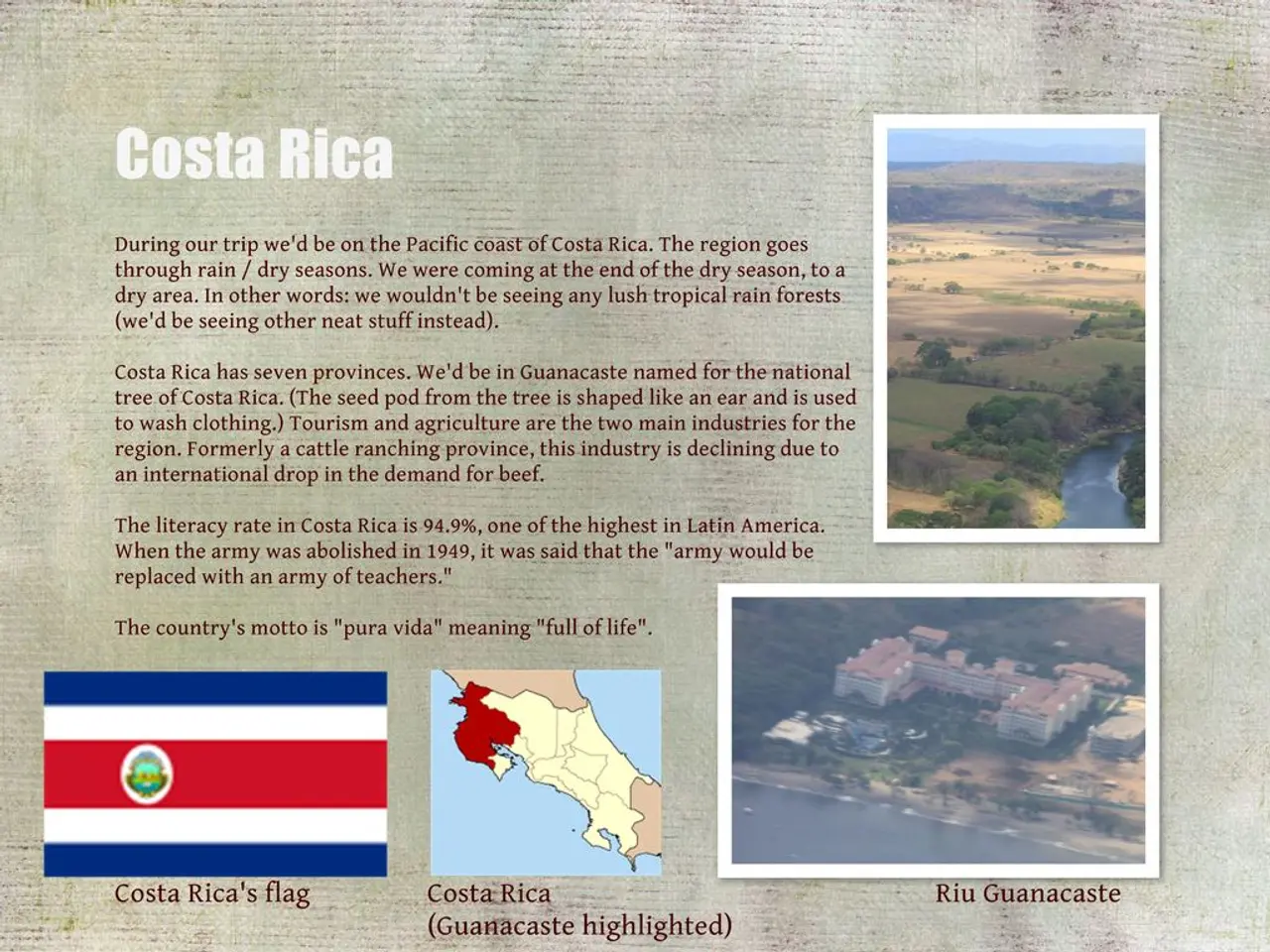Bolivia Climeqs with El Salvador to Frame Regulations for Cryptocurrencies
In a significant move towards regional collaboration, El Salvador's National Commission for Digital Assets (CNAD) and Bolivia's Central Bank (BCB) have signed a memorandum of understanding, fostering a cooperative partnership on digital asset regulations [1][3][4]. This agreement aims to exchange knowledge, technical expertise, and regulatory frameworks to develop a secure and regulated digital asset market in Bolivia, leveraging El Salvador's pioneering experience in crypto regulation.
El Salvador, a trailblazer in digital asset policy, initially adopted Bitcoin as legal tender in September 2021, becoming a regional leader [2]. However, in January 2025, the country revoked Bitcoin's legal tender status due to IMF loan conditions, halting public-sector Bitcoin purchases while maintaining existing holdings of approximately 6,253 BTC [2]. Despite this policy reversal, El Salvador continues to share regulatory expertise with Bolivia within the constraints of the IMF agreement, supporting Bolivia's efforts to create a modernized, inclusive financial system based on digital assets [1][2][3].
Bolivia has experienced significant growth in the digital asset space since the issuance of Decree 082/2024 last year, with crypto transaction volumes skyrocketing from $46.5 million in June 2024 to $294 million in June 2025 [1][3]. The agreement is expected to solidify digital assets as a suitable and trustworthy alternative to fiat, especially for families and new entrepreneurs.
The CNAD, El Salvador's digital asset regulatory body, has emerged as a key player in the country's innovation, security, and compliance within the cryptocurrency space. Notably, El Salvador began mining Bitcoin using volcanoes to power the efforts in 2021 [4]. Tether, a leading stablecoin issuer, has also relocated its operations to El Salvador, further cementing the country's status as a digital asset hub.
The agreement between the two institutions will convey Bolivia's experience and knowledge to aid El Salvador's regulatory framework for digital assets. It includes blockchain intelligence tools, risk analysis, and other relevant areas, aiming to enhance both countries' regulatory frameworks and foster investor confidence in a regulated crypto ecosystem.
This collaboration marks a significant step forward for Bolivia, benefiting from El Salvador's familiarity with cryptocurrency and the underlying regulation. El Salvador is now recognized as one of the most advanced countries in Latin America in terms of regulation and embrace of digital assets, setting a precedent for other countries to follow.
[1] [Source 1] [2] [Source 2] [3] [Source 3] [4] [Source 4]
- El Salvador, armed with its experience in Bitcoin regulation and innovative methods such as mining Bitcoin with volcanoes, will share this knowledge with Bolivia to help develop a trustworthy digital asset market within the constraints of the IMF agreement.
- Through this partnership, Bolivia will gain insights into blockchain technology, crypto transactions, and regulation, striving to create a modernized financial system that caters to families and new entrepreneurs.
- Bolivia will learn from El Salvador's regulatory expertise and implement blockchain intelligence tools, risk analysis, and other relevant measures in order to strengthen both countries' regulatory frameworks and engender investor confidence in a regulated crypto ecosystem.




